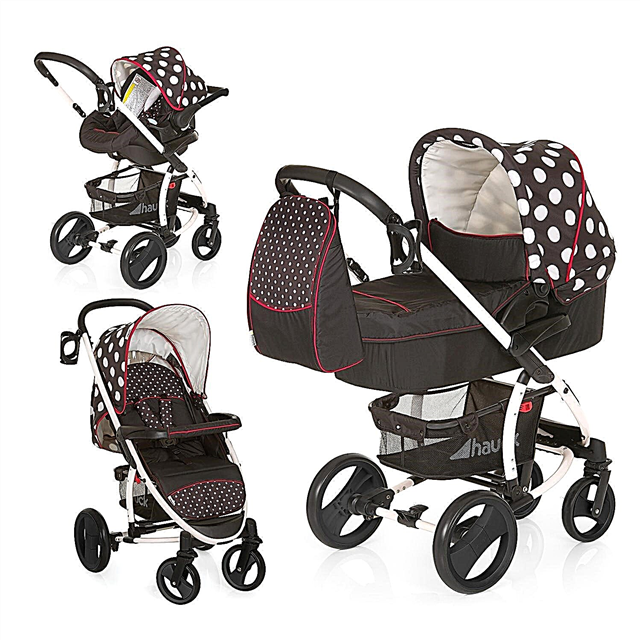
Pregnant women have to be more careful in organizing their nutrition, because the influence of certain foods on the development of the baby and the well-being of the expectant mother can be very significant. One of the foods that raise a lot of questions is pineapple.
What is useful for pregnant women?
The pineal inhabitant of the tropics has long been loved by Russians. Pineapple on the table is present not only on holidays, but also on weekdays. The sweet and sour taste of the fruits of this herb has a lot of fans. Pineapple can only be eaten when ripe. Unripe fruits have a pronounced acridity, burn lips and mucous membranes, affect the human intestines as a powerful laxative. However, as it fully ripens, the acridity is lost, only a delicate and pleasantly refreshing taste remains.
If we consider pineapple in terms of chemical composition, then most of the fruit is water. It is enriched with simple sugars and organic acids. It contains a large number of citric acid, vitamin C. In addition, the fruit pulp contains B vitamins and vitamin A.
However, the vitamin content of pineapple looks scarce compared to its mineral content. Large amounts of potassium, copper, iron, zinc, calcium, manganese and iodine are the real benefits for pregnant women.

Pineapple is rich in bromelain, a complex substance that can break down the structure of proteins. The high activity enzyme bromelain during pregnancy helps to better absorb absolutely all protein compounds, and protein is an important structural element for the organs and parts of the baby's body.
Pineapple is eaten raw and canned; it is widely used in confectionery for the preparation of sweets and treats. It effectively stimulates digestion processes, cleanses the intestines and partially straightens out some of the pathogenic bacteria that can settle in it. Pineapple is highly recommended for women with high blood viscosity and risk of thrombosis.
In case of enzyme deficiency, it is recommended to eat fresh fruit slices or drink pineapple juice. This significantly improves the production of enzymes necessary for delicate digestion.
The fruit will be especially useful for pregnant women who are overweight, obese, overeating, as well as for lovers of meat and meat products.

In the early stages of pregnancy, when a woman suffers from toxicosis, A glass of pineapple juice can be an excellent remedy for nausea and dizziness. At any stage, pregnant women can take the juice during air travel, traveling by water transport, since the product effectively relieves nausea attacks during motion sickness. It is not without reason that it is often offered to passengers on airplanes and cruise ships.
The calorie content of the product is low - only 48 kcal is present in 100 grams of pulp, and therefore the product cannot cause pathological weight gain, even though it contains a lot of sucrose. The high content of potassium salts makes the fruit truly therapeutic for women who suffer from edema during pregnancy - potassium salts remove excess fluid, edema decreases.
In general, the fruit is essential improves metabolism, increases appetite. But these are not its only advantages. Women have long known the tremendous effectiveness of pineapple pulp for cosmetic purposes. With the help of a lotion from a pineapple slice, you can quickly reduce tough calluses, as well as get rid of excessive oily skin.

B vitamins and magnesium in the fruit have a positive effect on the state of the nervous system. With regular use of the product, a woman becomes more peaceful and calm, her memory improves, it is easier for her to cope with stressful situations and maintain a good mood.
All of the above useful properties are relevant for fresh pineapple slices and fresh juice from it. If you prefer to eat canned fruit, then you should not count on the benefits. When preserving, a large amount of sugar and preservatives are added to the product. In addition, with such processing, the slices themselves lose almost all useful properties. Eating canned pineapples increases the likelihood of high blood sugar levels, which is especially dangerous in gestational diabetes and the onset of diabetes during pregnancy.

Contraindications and harm
Despite the numerous beneficial properties of the fruit, there are certain contraindications in which the product either cannot be used at all, or it should be strictly limited. In this case, the final decision on the admissibility of adding a product to the diet of a pregnant woman is made by her attending physician; such a decision cannot be made on her own.
Pineapple belongs to the group of foods with a high allergic status, which means that fruit allergies are not at all uncommon, and it is this that can cause significant harm to the organisms of the mother and baby. The fruit is tropical, it does not grow in our latitudes, and therefore contains certain combinations of substances that can cause an inadequate immune response. In pregnant women, such a risk is higher than the baseline, for the very reason that the immunity after conception begins to work in a new mode, it is suppressed, and an allergy may appear even if it was not there before pregnancy. For this reason, pregnant women with a burdened allergic history are not recommended to get involved in this fruit.
Other contraindications include:
- gastritis with increased acidity of gastric juice;
- peptic ulcer of the stomach and duodenum;
- diabetes mellitus of any type, including gestational form.


Previously, doctors did not advise women to consume pineapple in the first trimester, believing that this could cause the development of allergies in the child in the future. But recent studies have shown just the opposite, and the World Health Organization has changed its own official guidelines. It is now believed that The risk of allergies in a child will be lower if a woman takes a variety of highly active allergens in moderation during pregnancy. Therefore, a few slices of pineapple will definitely not harm.
The mysterious enzyme bromelain is also surrounded by myths. Many women's magazines and websites report that this substance in pineapple can cause premature birth in late pregnancy. But this is not true. Bromelain has an anti-inflammatory effect, helps to prevent the formation of blood clots, but it does not affect the synthesis of prostaglandins, oxytocin, the level of progesterone, and therefore cannot cause the onset of labor ahead of time.
The danger may lie in overeating - the fruit should be consumed in moderation, and the juice should be diluted with water. If you do not comply with these requirements, gastrointestinal disorders, manifestations of allergies, even in women who do not have obvious and hidden contraindications to eating the fruit, are not excluded. Unripe fruits are dangerous in and of themselves, as they severely irritate the mucous membranes and can cause severe diarrhea and dehydration. But unripe pineapple is also tasteless, and therefore you won't be able to eat a lot of it with all the desire.

In what form is it better to eat?
Fresh pineapple is the best choice for a pregnant woman. It can be consumed separately, combined with other fruits and berries, for example, as part of a fruit salad, add slices to cottage cheese, curd mousse, kefir. A reasonable amount of fruit can be considered to be up to half a medium-sized fruit per day. You don't need to eat fruit every day. It would be correct to introduce pineapple into the diet with a frequency of 1 to 3 times a week.
You can drink pineapple juice. Enough half a glass before meals 1-2 times a day. Drink the juice shortly before meals to improve digestion and stimulate the production of essential digestive enzymes. Add about half of pure water to fresh juice. This will keep the lining of your gastrointestinal tract safe.

If desired, you can afford dried pineapple slices in small quantities. But remember - there is more sugar in a dried product than in a fresh one, and therefore you should limit the use of such a delicacy as much as possible.
Canned pineapple is not shown to pregnant women, since there is almost no benefit in it, and there is more than enough harm. The same applies equally to chocolate-covered pineapple slices, glaze and other manufactured confectionery products.

How to use at different periods?
In the early stages in the 1st trimester, a woman should use the fruit with great care - you need to monitor your well-being in order to pay attention to the possible development of an allergic reaction in time. As with planning a pregnancy, during this period it is better to give preference to fruits that are "native" to your area, so you can reduce the likelihood of allergies and eating disorders. If you do not exceed the amount recommended by the doctor, then there should be no negative reactions.
In the 1st trimester, you can carry dried pineapple pieces with you. They can come in handy if an attack of nausea catches you on the street, at work, in transport. Just one slice will significantly ease your well-being. You can start the morning with half a glass of juice, the main thing is not to forget to dilute it.
In the 2nd trimester, there are no significant restrictions if there are no contraindications. But in the later stages of the 3rd trimester, in preparation for childbirth, it is better to reduce the amount of fruit in the diet due to the fact that it has a blood-thinning effect, and a slight physiological thickening of the blood at 39-40 weeks is a normal natural mechanism that protects a woman from excessive blood loss in the generic process.
At any time, you must be very responsible in choosing a good fruit. Ripe pineapple has a delicate, almost subtle, sweet scent. If it is not there, then the fetus, with a high degree of probability, is immature.


But with a strong smell, also do not rush to take pineapple to the table of a pregnant woman - this is the smell of fruits that are already beginning to rot. The top leaves should be yellow but not dry and the top should be fairly easy to open. The fruit should not be very hard to the touch, but it cannot be very soft either.
A ripe and good pineapple can be spinned around its axis, holding by the tops, and when patted on the sides, it emits a dull sound. The pulp of a ripe fruit is yellowish, while that of an unripe fruit is pale.
If on the counter you come across pineapple fruits already cut into halves, you should not take them - it is difficult to say when it was cut, and how long bacteria have already multiplied in it.
Do not take unripe pineapples for future use either - if the fruit was harvested too early, it will not ripen under any home conditions, and the stage of decay will immediately begin.




